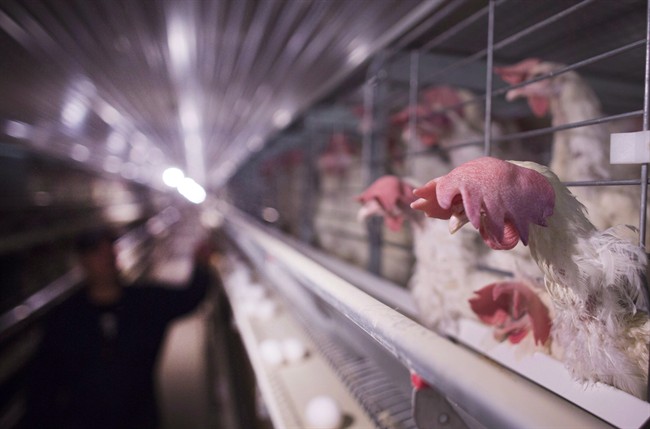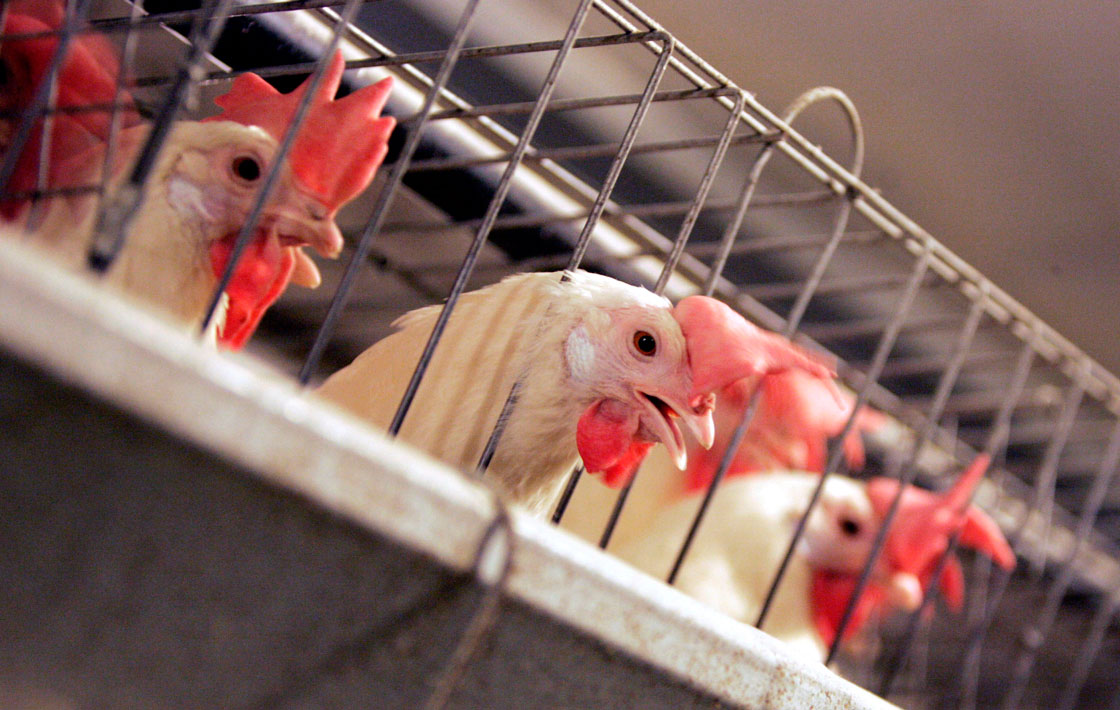The Canadian Federation of Humane Societies says a new code of practice for egg farmers will help reduce the extreme stress suffered by egg-laying hens and give consumers some assurance about the term “cage-free.”

The National Farm Animal Care Council code calls for producers to work toward phasing out the use of small, cramped cages for hens over the next 15 years, and sets new care standards for the birds, the federation says.
With 90 per cent of egg-laying hens living in cramped cages, the code will help egg farmers make the transition to more humane practices, federation president Barbara Cartwright said Monday.
“The phase-out of barren battery cages is a huge win for Canada’s hens,” Cartwright said. “The timeline is much longer than we consider acceptable, but it doesn’t diminish how meaningful a change this is.”
Battery cages are so small that hens can’t walk or spread their wings for their entire lives. No more of these cages are to be built in Canada as of April 1.
READ MORE: Canadian grocers’ move to cage-free eggs an ‘important commitment’
The new code also spells out standards of care for so-called “cage-free” egg-laying hens.
The federation said this will ensure that hens have more space to perch and forage for food, boxes to nest in and better care if they become sick or hurt.
Geoff Urton, who helped negotiate the changes on behalf of the federation, said without the new code the term “cage-free” that some consumers look for when buying eggs could be meaningless.
He said some of the guidelines are amongst the most progressive in the world.
“It is probably the most significant animal welfare achievement, influencing the greatest number of animals, that Canada has ever had,” he said.
“The new standards in this code will ensure that the term `cage-free’ is as progressive as it sounds.”
Under the new code the federation expects that half of Canada’s egg-laying hens will be in cage-free barns within eight years or live in larger cages.
READ MORE: McDonald’s will switch to cage-free eggs, burger chain says
Last year the group Egg Farmers of Canada, which represents about 1,000 regulated egg-producing farms across the country, said it expected the use of battery cages would be phased out by 2036.

Urton said the marketplace will be a key driver in the transition.
A growing number of grocery store and restaurant chains have pledged to buy the eggs they need from cage-free producers.
READ MORE: Tim Hortons vows to serve cage-free eggs by 2025
Last May, Retail Council of Canada members including Loblaw, Metro Inc., Overwaitea Food Group, Save-On-Foods, Sobeys Inc., and Wal-Mart Canada Corp., announced they plan to purchase cage-free eggs by the end of 2025.
“When you have these big food businesses come out and say ‘look, we are only going to put our brand behind humanely-raised cage-free eggs’, it sends a clear message,” Urton said.
National Farm Animal Care Council members include Agriculture Canada, producers, retailers, farm organizations and animal welfare groups.

WATCH ABOVE: Fork in the Rowed farms started as one tomato plant, and has grown to a local and sustainable 14 acre farm in Lethbridge County, providing fresh and organic produce to Southern Albertans.


Comments